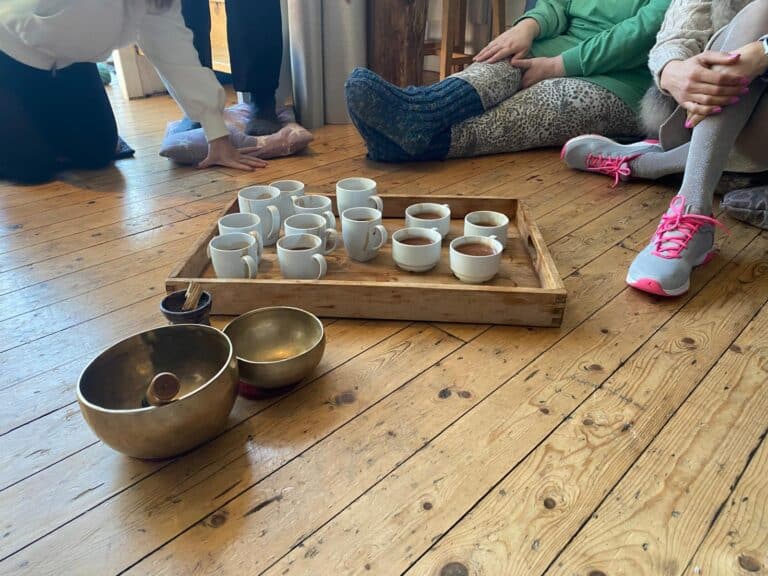The Six Most Important Nutrients Every Woman Needs
1. Zinc (Zn).
The mineral zinc plays an important role in fertility and reproduction. It is also an important co-factor in the production of female hormones for pre-menstrual and post-menopausal women.
Zinc and magnesium levels tend to be lower in PMS (pre-menstrual syndrome) women. Both seem to increase serotonin levels and zinc has a antidepressant effect. Zinc is vital for methylation, working with B vitamins and betaine hydrochloride (stomach acid).
The study shows the reduction in the duration of colds from zinc.
2. B vitamins
B vitamins are important both for energy production and for stabilizing mood.
Vitamin B6 is necessary for choline to work, which helps to remove estrogens from the liver. If these estrogens are not cleared efficiently, symptoms related to estrogen dominance can occur, including a greater risk of breast cancer.
A low level of B6 is associated with an excess of estrogen in relation to progesterone. Vitamin B6 levels have also been shown to be depleted in women taking the birth control pill. Several studies with vitamin B6 have found significant improvements in the preported remenstrual syndrome.
Vitamins B12 and folic acid are also cofactors for the enzymes that make hormones or help make prostaglandins (hormone-like substances). Together with B6, they form the cornerstone of methylation, which protects DNA. Hence they are necessary in pregnancy.
3.Magnesium (Mg)
Low magnesium levels have been associated with poor appetite, nausea, lethargy, mood swings and muscle cramps. Magnesium reduces water retention and improve the voteg, also known as a sleep aid.
Women who suffer from PMS have been shown to have less magnesium than women without symptoms. Estrogen increases the absorption of magnesium by tissue and bone, so aging (decrease in estrogen) is associated with a increased need for magnesium.
Like vitamin B6 and zinc, magnesium is needed for making prostaglandins and can help PMS patients in this way. Cramps are usually caused by calcium/magnesium imbalances and can be corrected by supplementing with magnesium.
Magnesium has so many other benefits, including muscle relaxation, lowering blood pressure, preventing insomnia and generally calming emotions. Mg and Vitamin B6 Improve Anxiety Related PMS.
Low magnesium levels can also be a risk factor for headaches and migraines.
Getting enough magnesium also reduces cancer risk. A high intake of magnesium nearly doubles the breast cancer survival.
4. Phytoestrogens
These estrogen-like substances are found in plants such as soy products, red clover and flaxseed.
The phytoestrogens actually protect against estrogen overload by occupying the same hormone receptor sites as estrogen.
Soy consumption is controversial so I wouldn't recommend eating it often, fermented soy is best.
Flaxseed and flaxseed oil contain the highest concentration than any other source of phytoestrogens. Other sources include apples, carrots, olives, pomegranate oil and sunflower seeds.
It would be beneficial to know what level of estrogen and progestreone you have.
5. Vitamin C
We all need vitamin C and we don't get enough. However, especially women during the menopause can do a little more.
Estrogen deficiency, observed during menopause, is associated with increased cardiovascular risk and endothelial dysfunction, meaning arteries and skin become less elastic. This can lead to higher blood pressure and more wrinkles, respectively. Antioxidants such as vitamin C have been shown to improve endothelial function in healthy estrogen deficient postmenopausal women.
Vitamin C also helps B vitamins such as B6 and magnesium work.
Vitamin C acts as a precursor to glutathione, the main liver antioxidant. It absorbs chemicals, pesticides, heavy metals (such as mercury, lead and arsenic) and nasty free radicals.
6. DIM (Diindolylmethane) and Indole-3-carbonol
DIM and I3C contain indoles, plant compounds with health-promoting properties. They are found in high amounts in cruciferous vegetables such as broccoli, cauliflower, Brussels sprouts and cabbage.
They have been shown to reduce the effects of estrogen, probably due to helping estrogen detox in the liver.
DIM increases estrogen metabolism, resulting in an increase in beneficial estrogen metabolites and a decrease in active estrogen, causing problems such as weight gain, PMS, and menopausal symptoms.
Do you need more information and/or which desalinations to use? contact me.




